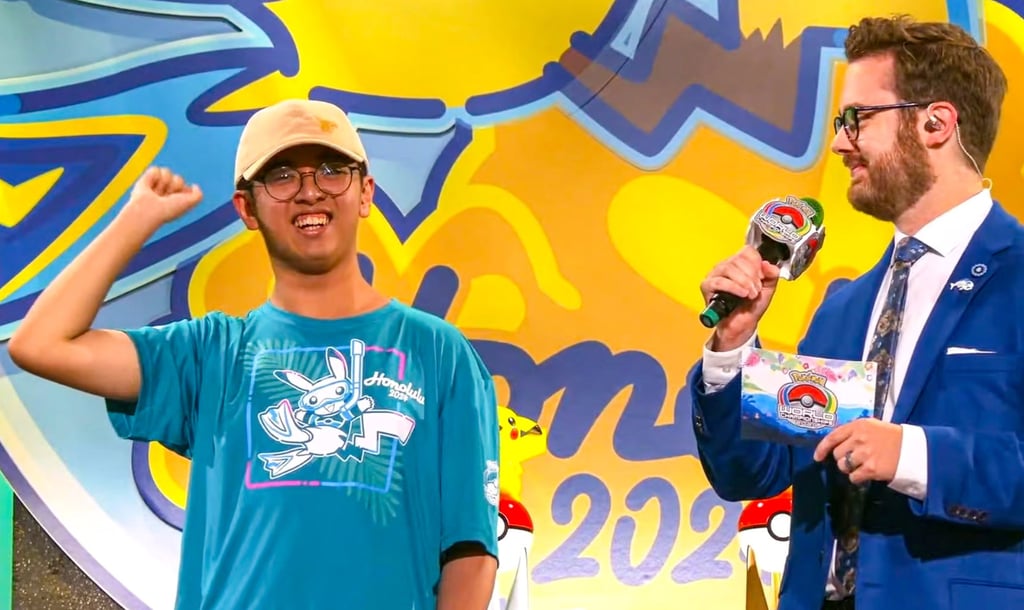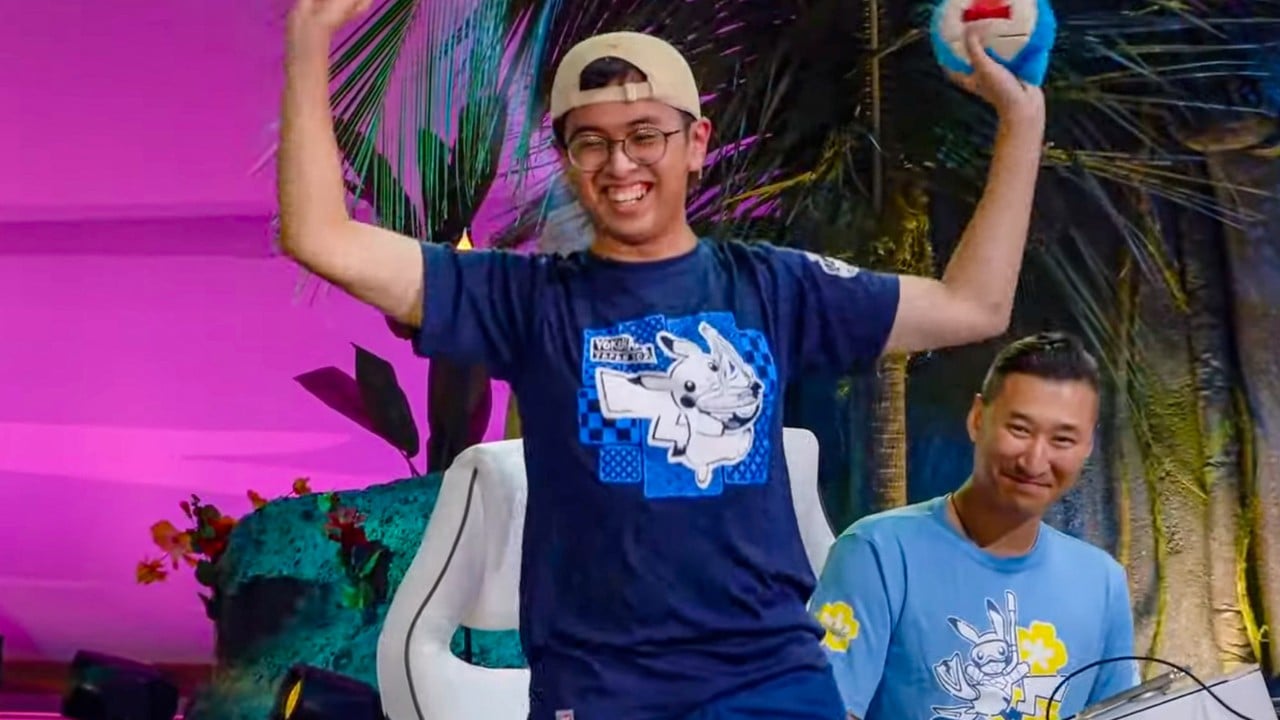A 16-year-old boy has become Hong Kong’s latest world champion, not at the Olympic Games, but in Pokemon Go.
Cheng Yip-kai, who plays under the username Yekai0904, secured the title on Sunday at the world championship held in Honolulu, Hawaii, becoming the first Hongkonger to do so.
He won 3-1 over Dutch Martijn Versteeg, or Inadequance, and took home a US$20,000 (HK$155,760) prize.
Cheng’s triumph came less than a year after another Hong Kong team won a silver medal in esports at the Hangzhou Asian Games in September.
The mobile game Pokemon Go pits players against one another in battles, each with a set of three Pokemon.
Players tap on the screen to attack with different gestures and gain points by knocking out their opponents.
In a post-match interview, Cheng said he still could not believe he had won.
“When I attended my first world championship last year, I met many famous players in real life and hoped I could follow in their footsteps one day,” he said.
“I still have not calmed down and am very excited about the win.”
He thanked his aunt for accompanying him to the United States and his Hong Kong teammates for crowdfunding HK$5,000 to sponsor his travel.
His flights and hotel accommodation were sponsored by organisers, which he said lightened the financial burden.
He also said he was grateful to the audience in Hong Kong and Taiwan for staying up late to watch the finals live, despite the time difference.
Players who took part in the championship could compete in four different categories: trading card game, video game, Pokemon G0 and Pokemon Unite.
For an invitation, players must earn enough points by competing in local competitions around the world throughout the year.
Last year, Cheng competed in his first Pokemon World Championships in Yokohama, Japan.
Without official funding from the government, Cheng and four others managed to represent Hong Kong then through crowdfunding efforts.
Among those who helped fund their trip was Dr Lai Ching-lung, who is a renowned liver expert, emeritus professor and honorary clinical professor at the University of Hong Kong, and Pokemon Go enthusiast.
The team, however, was eliminated in the preliminary rounds due to a lack of experience against other international players.
Cheng told local media then that his mother was against the idea of him taking part in the championship due to the lack of funding.

The team also said they were judged by others who had the impression that the game, which went viral when it first launched in 2016, was only played by older people.
Last year, a five-man team from Hong Kong won the silver medal in esports for the battle arena game, Dream Three Kingdoms 2, during the Hangzhou Asian Games.
Due to a lack of major tournaments and funding, the team pursues esports, which made its debut as an official medal event last year, only on a part-time basis.
Their coach said then that the city’s esports events were often one-off and urged the government to take the first step in organising a regular tournament in the city and providing funding to train more professionals.
This comes in contrast with mainland China and Korea, home to major video game companies that have established resources for esports.
China won four esports gold medals in seven matches at the Asian Games, despite the government’s crackdown on youth addiction to gaming in recent years.
The Chinese sports administration officially listed esports as a formally competitive sports item in 2003 and has held a National Electronic Sports Tournament annually since 2012.
This year’s tournament, to be held in Beijing for the first time, will take place later this month.
According to Statista Market Insights, the global esports market is expected to reach a revenue of US$4.3 billion in 2024.


